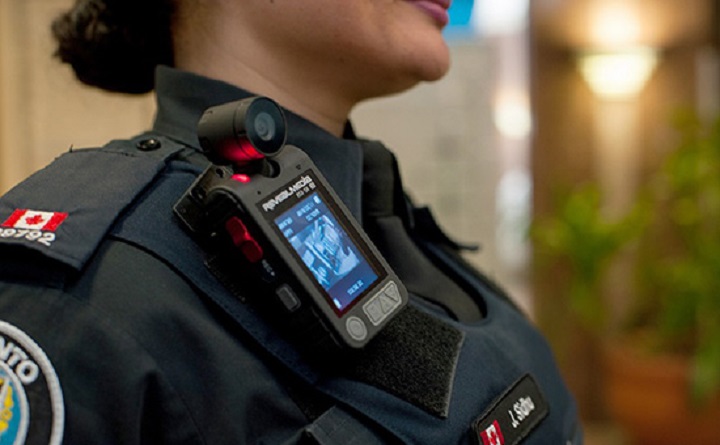Toronto police say it will take nearly two years before a decision is finalized on the type of technology needed to equip its officers with body-worn cameras following a stringent procurement process revealed during a public forum on Tuesday.

“If we find at the end of this, some 18 to 20 months, that the technology isn’t in our opinion – stable, doesn’t do the things we require, needs perhaps more time to evolve – we’ll be very frank with the chief and the command,” Insp. Michael Barsky, project lead for the body-worn cameras initiative, said.
The Toronto Police Services Board agreed to go ahead with a $500,000 non-binding request for proposals on the camera technology last year following a year-long pilot project.
“We are now on the cusp of research of where the technology is,” Barsky said. “We’ve seen the technology. When the technology works, it provides a brilliant tool to best evidence, to training, to transparency and interaction. And we think there is great value to that.”
READ MORE: Toronto police urging body cameras for officers despite estimated $85M cost
The approval to move ahead with the procurement process came a month after a police report was released in favour of the plan, despite an estimated cost of $85 million over 10 years to implement, operate and maintain the cameras.

Get breaking National news
The report also found major issues following the pilot project including serious battery problems that only allowed use of the cameras for three-to-five hours per shift.
- Ontario government directs schools to let students watch Team Canada matches
- Fourth complainant set to testify at sex assault trial of businessman Frank Stronach
- ‘Save OSAP’ campaign launched asking Ford government to reverse student loan changes
- Ontarians without a family doctor at higher risk of death, study finds
There was also hope that the body cameras would have a positive effect on police officers by decreasing use-of-force incidents, but there was little effect, according to the report.
READ MORE: 5 things to know about Toronto police body-worn cameras
Security concerns were also noted in regards to data storage, which police would opt for in-house storage devices as opposed to having the data stored on a cloud-based server hosted by a third party.
However, surveys conducted by Toronto police showed 95 per cent of the public and 85 per cent of officers support the use of the cameras.
Police said they hope the procurement process will give them the opportunity to find the right technology that fits the force’s needs.
LISTEN: Inspector Michael Barsky joins AM640’s Kelly Cutrara Show
“We will either issue fourth quarter of this year or first quarter of next year, a request for information (RFI) to inform ourselves on where the technology is so we can know full well where the technology is today in 2017, and where the vision is as we move forward,” Barsky said.
“Then we’ll issue a request for quotation (RFQ) to assess what that technology can’t and can do for us.”
Officials say the exact cost of implementing the body cameras is not yet known. Police are also not able to say how many officers will be equipped with the devices if the initiative is approved.
VIDEO: Toronto police provide update three months into body camera pilot project
-With a file from The Canadian Press








Comments
Want to discuss? Please read our Commenting Policy first.